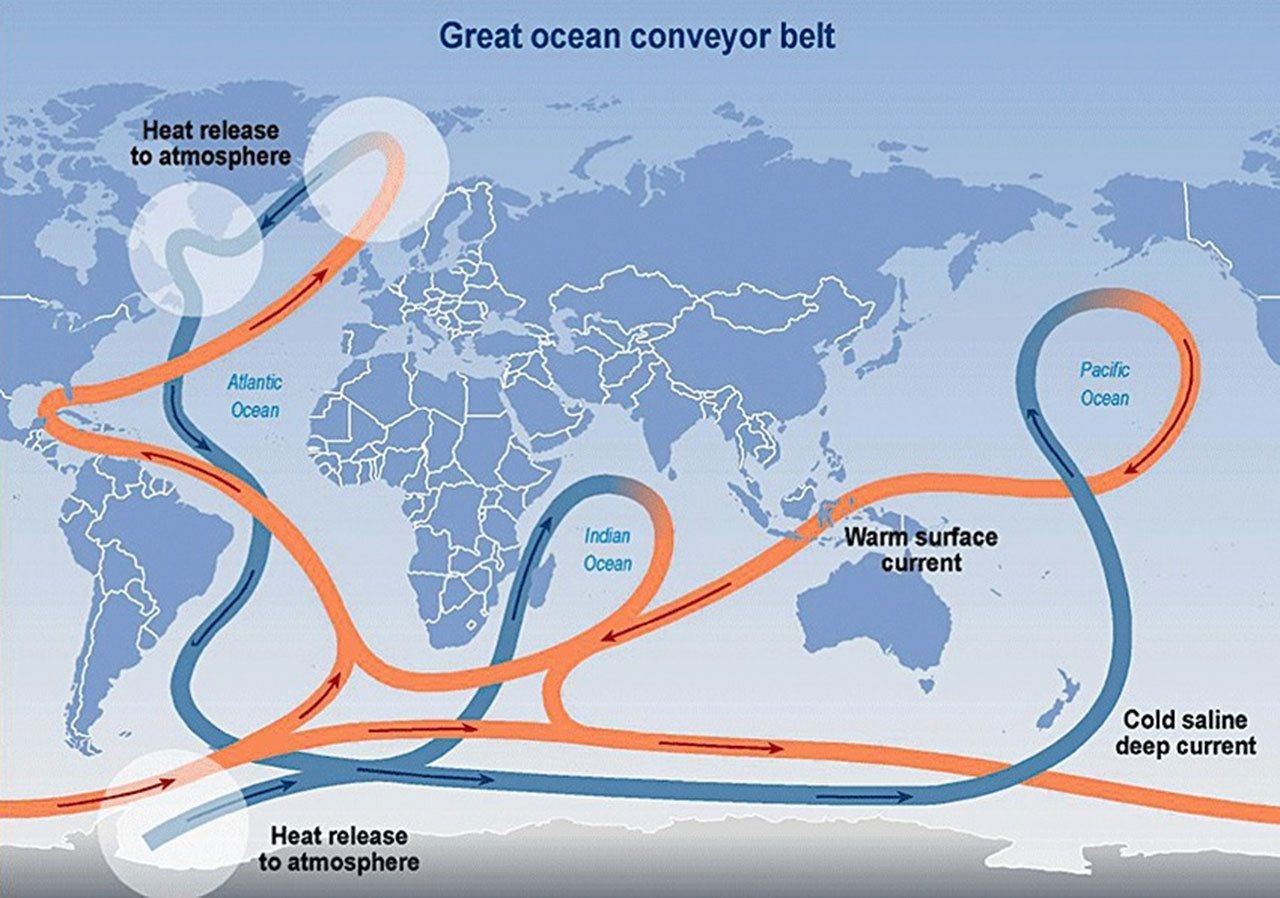Description
In News
- A study published in Nature Climate Change notes that the Atlantic Meridional Overturning Circulation (AMOC), is losing its stability. According to the IPCC’s Report (AR6) released on August 9, it is very likely that AMOC will decline over the 21st century. AMOC is at its weakest in over a millennium. The team studied the evolution of AMOC over the past 1600 years.
What is AMOC?
- The AMOC is a large system of ocean currents.
- It is the Atlantic branch of the ocean conveyor belt or Thermohaline circulation (THC), and distributes heat and nutrients throughout the world’s ocean basins.
- AMOC carries warm surface waters from the tropics towards the Northern Hemisphere, where it cools and sinks.
- It then returns to the tropics and then to the South Atlantic as a bottom current.
- From there it is distributed to all ocean basins via the Antarctic circumpolar current.

Why is the AMOC slowing down?
- Global warming can cause a weakening of the major ocean systems of the world.
- Last month researchers noted that a part of the Arctic’s ice called “Last Ice Area” has also melted.
- The freshwater from the melting ice reduces the salinity and density of the water.
- Now, the water is unable to sink as it used to and weakens the AMOC flow.
- A 2019 study suggested that the Indian Ocean may also be helping the slowing down of AMOC.
- As the Indian Ocean warms faster and faster, it generates additional precipitation.
- With so much precipitation in the Indian Ocean, there will be less precipitation in the Atlantic Ocean, leading to higher salinity in the waters of the tropical portion of the Atlantic.
- This saltier water in the Atlantic, as it comes north via AMOC, will get cold much quicker than usual and sink faster.
- This would act as a jump start for AMOC, intensifying the circulation.
- If we continue to drive global warming, the Gulf Stream System will weaken further – by 34 to 45 percent by 2100 according to the latest generation of climate models.
What happens if AMOC collapses?
- Gulf Stream, a part of the AMOC, is a warm current responsible for mild climate at the Eastern coast of North America as well as Europe. Without a proper AMOC and Gulf Stream, Europe will be very cold.
- Modelling studies have shown that an AMOC shutdown would cool the northern hemisphere and decrease rainfall over Europe. It can also have an effect on the El Nino.
- AMOC collapse brings about large, markedly different climate responses:
- a prominent cooling over the northern North Atlantic and neighbouring areas,
- sea ice increases over the Greenland-Iceland-Norwegian seas and to the south of Greenland, and
- a significant southward rain-belt migration over the tropical Atlantic.
- Freshwater from melting Greenland ice sheets and the Arctic region can make circulation weaker as it is not as dense as saltwater and doesn’t sink to the bottom.
https://indianexpress.com/article/explained/explained-atlantic-ocean-current-system-slowing-implications-7445388/















